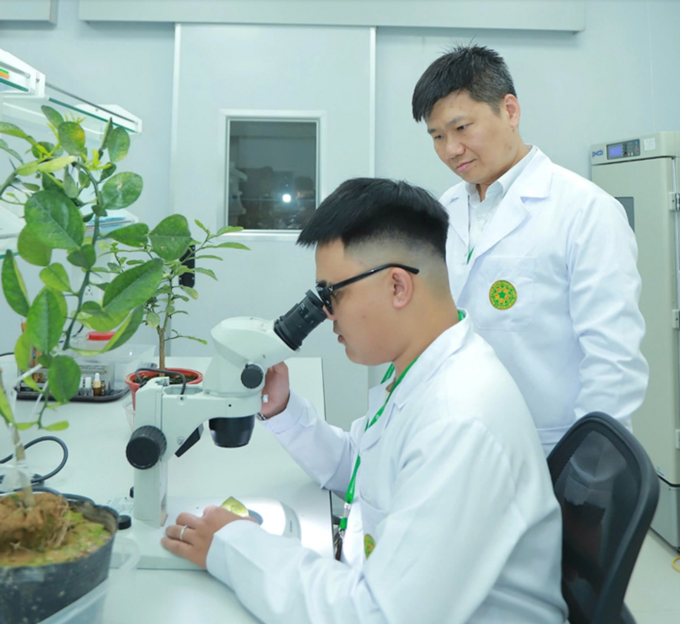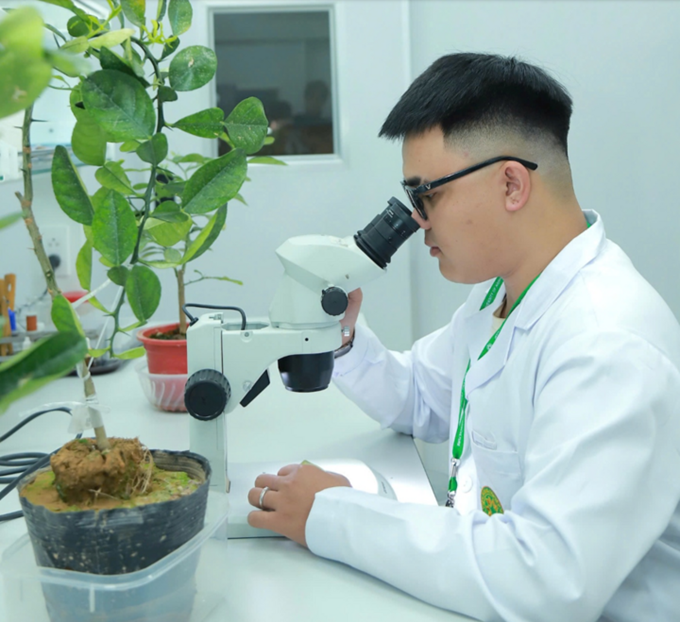The Faculty of Agronomy, Vietnam National University of Agriculture (VNUA), is directly addressing the challenge of developing high-quality human resources for sustainable agriculture through a major reform of its Master’s programs.
In the context of the global shift toward clean and bio-secure agriculture, the pressing question is “Where will the highly skilled human resources come from?”. At VNUA, the Faculty of Agronomy is addressing this challenge through a major reform of its Master’s programs, particularly in Plant Protection and Crop Science.
Instead of following traditional teaching approaches, the Master program in Plant Protection has been updated to closely link theory with real-world agricultural practice. Students would be equipped with advanced knowledge in integrated crop health management, biological pest control, digital technologies, and precision agriculture, helping them develop green thinking, digital skills, and global integration capacity. This program is designed to prepare future graduates to become pioneers in building a green, clean, and sustainable agricultural sector.
Master Training at VNUA: In-depth Knowledge, Practical Skills
Not only Plant Protection, other Master’s programs of the Faculty of Agronomy have been designed to combine academic depth with practical application, incorporating modern technologies and global agricultural trends to meet the demands of sustainable development and international integration.
Speaking about this innovation, Assoc. Prof. Dr. Nguyen Duc Tung, Vice Dean of the Faculty of Agronomy, VNUA, shared, “We do not only train learners to know how to grow and manage crops, but also help them gain a deep understanding of the physiological and genetic mechanisms, as well as the interactions among crops, the environment, and humans. From there, they can apply modern science and technology to improve productivity and the quality of agricultural products, aiming toward a safe and sustainable agriculture”.
Accordingly, the Master’s program in Crop Science has been designed with a modern approach, aligned with the trends of digital transformation and high-tech agriculture. Learners are offered advanced courses such as Agriculture in the Digital Transformation Era, Applications of Artificial Intelligence in Agriculture and the Environment, and Applied Biotechnology, along with specialized modules on Plant Physiology, Industrial Crops, Medicinal Plants, and Root and Tuber Crops. The training program aims to train a generation of experts equipped with the capacity for research, management, and development of intelligent, safe, and sustainable agriculture.

A Solid Launchpad: High-Quality Lecturers and Modern Facilities
To ensure high-quality education, the Faculty of Agronomy, VNUA, relies on two key strengths.
Leading lecturers: The Faculty has a proud tradition of nearly 70 years (founded in 1956). Currently, 85% of its lecturers hold a doctoral degree or higher, and over 90% have received formal training in countries with advanced agricultural systems such as the United States, Japan, Germany, the Netherlands, and Belgium. This is the core strength that enables the Faculty to maintain its position as one of the leading institutions in agricultural education nationwide.
Modern Facilities: Graduate students have the opportunity to directly engage in research and handle real-world situations. The Faculty is equipped with a series of specialized laboratories, including the Biological Control Laboratory, the Plant Genetics and Breeding Laboratory, the Plant Physiology and Nutrition Laboratory, the Seed Testing Laboratory, the Medicinal Plant Product Development Laboratory, and notably, the Plant Clinic, a model that connects research with practice, where issues related to plant growth and pest management are diagnosed and addressed through scientific solutions.

Bright Career Prospects after Graduation
Graduates from the Faculty of Agronomy’s Master’s programs at VNUA would have diverse and promising career pathways: (i) Teaching and Research: Working at research institutes and universities; (ii) Management and Administration: Serving as officials in government agencies; holding technical or managerial positions in agribusinesses; or coordinating agricultural and sustainability projects with international organizations; (iii) Entrepreneurship: Launching startups in high-tech agriculture; (iv) and Advanced Specialization: Continuing to Ph.D. studies or becoming professional consultants in agriculture and environment.

With three postgraduate disciplines (Masters’ and PhD programs), including Crop Science, Plant Protection, and Genetics and Plant Breeding, the Faculty of Agronomy, VNUA, is committed to training a new generation of experts with solid professional knowledge, innovative thinking, and leadership capacity to drive Vietnam’s agricultural transformation toward a green, modern, and sustainable future.